Search Results
Showing results 621 to 640 of 1245
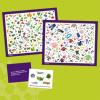
I Spy Nano!
Source Institutions
In this game, learners try to find nano-related objects on a game board. Learners investigate the different ways nano is in the world around us.

Design a Seed
Source Institutions
In this activity, learners will design a seed and test how it travels. Learners will use the Engineering Design Process to create a seed which can move from place to place.

Bent Toward Science: Refraction
Source Institutions
This is an activity about the behavior of light. Using simple, everyday objects, learners will discover that light moves in straight lines until acted upon by another object.

Eyewitness Game
Source Institutions
In this demonstration (9th on the page), learners explore eyewitness memory and how memories differ amongst individuals. While the rest of the group is minding their own business (i.e.
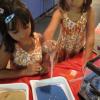
Sand, Plants and Pants
Source Institutions
In this activity, learners explore how the application of nano-sized particles or coatings can change a bigger material’s properties.

Egyptian Measuring
Source Institutions
In this activity, learners compare the ancient Egyptian system of measurement, which was based on body lengths, to the customary and metric systems used today.
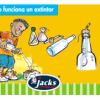
Como funciona un extintor
Source Institutions
In this Spanish-language chemistry activity, learners use simple materials to explore how fire extinguishers work to put out fires.

Soda Geyser
Source Institutions
In this quick activity (page 1 of PDF under SciGirls Activity: Lift Off), learners will use the ever-popular soda geyser experiment to test the reactivity of the various sugar candies or mints.
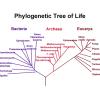
Dichotomous Key
Source Institutions
In this classification activity, learners will learn one way of organizing plants and animals.
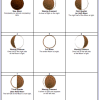
Oreo Phases
Source Institutions
In this activity, learners recreate the lunar phases using the frosting from Oreo® cookies and place the phases in order. Round cream cheese crackers can also be used if cookies are not an option.

Downhill Race
Source Institutions
In this activity, learners explore how two cylinders that look the same may roll down a ramp at different rates.
Fish Family Identification
Source Institutions
In this game, students will become familiar with fish shapes, learn that fish within a given taxonomic family have similar body shapes, and discuss how different body shapes enable fish to survive in
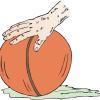
Roller Ball Painting
Source Institutions
This is an activity in which learners explore the effects of gravity, motion and momentum while creating art.

Changing the Density of a Liquid: Heating and Cooling
Source Institutions
Learners investigate how the temperature of water affects its density.
Tree Poker
Source Institutions
In this activity (p.14-15 of PDF), learners discover the concepts of competition and limiting factors as they relate to plant and animal communities.

The Turing Test: Conversations with Computers
Source Institutions
This activity aims to stimulate discussion on the question of whether computers can exhibit “intelligence,” or are ever likely to do so in the future.

Exploring Fabrication: Self-Assembly
Source Institutions
In this activity, learners participate in several full-body interactive games to model the process of self-assembly in nature and nanotechnology.

Space Elevator
Source Institutions
In this activity, learners imagine what the world might look like if we could build an elevator to space!
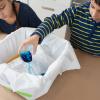
Make a Lake
Source Institutions
Where rainwater goes after the rain stops? And why there are rivers and lakes in some parts of the land but not in others?
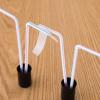
Electroscope
Source Institutions
In this activity about electricity, learners suspend pieces of tape from a straw to construct an electroscope, a device that detects an electrical charge.
